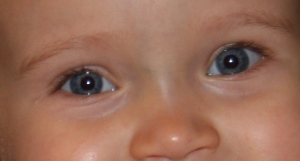From: FB page of Phd in Parenting:
Do you find the articles posted here and the discussions on the page valuable? Consider suggesting the page to some of your friends who might like it too. The more the merrier!
via Do you find the….
From my FB page...Parenting in the Loop
This is a great blog and valuable discussions for anyone who is concerned about making the world a better place now and for the next generation…two thumbs up here!
Tag Archives: Parent
Lunch Notes ….
NOTEWORTHY WEDNESDAY!
Lunch Notes…Just some random thoughts…
With my morning coffee I read this article on lunch notes…
Yet another thing to make moms feel guilty.
If they are not putting notes in their kids’ lunches…their kids may feel left out. Oh no!
Worse yet… they may feel that their moms don’t care enough about them to buy a pre-written note to stick in their bento box.
I have to admit…
for fun, I used to cut my kids’ sandwiches into heart shapes…I had some free time and thought it would be cute.
I was operating out of guilt because…OMG… I worked, teaching nursing and had to leave very early in the morning…before my girls were even out of bed.
There were no cell phones to text …so… I had to use hearts and notes left with their breakfasts as a way to make them forgive me for not being present during every their every waking moment.
What was their reaction to this???
Not exactly what I thought it would be.
“Lame”…I think was the word they often used in the 80’s to describe some of my thoughtful moments.
What has changed since then…to make notes cool and competitive?
I am not sure…but what I want to know…is..
Are you sending notes to school in your child’s lunch?
and if you are …why?
and honestly…what are your children’s reactions???
The lunch-box note used to be an occasional smiley face on scratch paper. Now it’s an elaborate fixture of the school cafeteria. Some kids complain when they don’t get a lunch note. Or they may compare lunch notes with friends. Parents hear about it when their efforts fall short.
via Lunch Notes Get Crafty, as Parents Design—Or Buy—Motivational Messages – WSJ.com.
9/11…10 Years Later…Lessons Learned
NOTEWORTHY WEDNESDAY THURSDAY!
This past Sunday was the 10th anniversary of 9/11.
The horror of 9/11 will remain.
This year the surviving families, children and spouses showed us all how life goes on and how they have managed to remember and honor their loved ones who perished on 9/11.
The surviving children that honored their parents at the memorial were inspirational…some knew their parent others did not as they had not even born yet.
Children are remarkable and in their own way resilient.
Resilience is a word that is used often, but in my opinion it is a characteristic that is not well understood.
Each of us has the capacity for resilient behavior but it has to be nurtured in us.
Resiliency is the ability to spring back from and successfully adapt to adversity. An increasing body of research from the fields of psychology, psychiatry, and sociology is showing that most people–including young people–can bounce back from risks, stress, crises, and trauma and experience life success.
via Resiliency In Action.
It seems that some children function well after traumatic events and this is related to the way their parents’ have reacted to such events and the way they have been brought up to use adaptive coping responses.
It has been found:
When families and mothers ‘did well,’ so did their children. Conversely, families and mothers who showed negative posttraumatic reactions had children who showed similar negative outcomes.
An array of protective characteristics or factors has been identified in resilient children. They are present at the individual, family, and community level and contribute, together, to adaptation following trauma during childhood:
(1) trauma characteristics;
(2) the child’s own resources;
(3) the child’s family characteristics;
(4) the community support (i.e. from teachers, peers, friends, mentors); and
(5) developmental path.
via Children’s Resilience in the Face of Trauma | Education.com.
So the remarkable children and spouses, we witnessed on the anniversary of 9/11 speaking of their lives now, are reflections of their surviving parents and those who perished in the attacks that day in 2001.
Let us all try to foster resilience in our children in this age of uncertainty so that they can call upon it when and if they need to do so.
References
1. Masten, AS (1994) Resilience in individual development: Successful adaptation despite risk and adversity. In MC Wang & EW Gordon (Eds.) Inner City Educational Resilience
2. Masten, AS, Best, KM & Garmezy,N. (1991) Resilience and development: contributions from the study of children who overcome adversity. Development and Psychopathology, 2, 425-444
3. Scheering, MS & Zeanah, CH (2001) A relational perspective on PTSD in early childhood. Journal of Traumatic Stress, 14 (4) 799-815
4. Hoven, CW, Duarte, CS, Lucas, CP et al (2002) Effects of the World Trade Center attack on NYC Public School Students: Initial Report of the New York City Board of Education. New York: Columbia University Mailman School of Public Health, New York State Psychiatric Institute and Applied Research and Consulting, LLC
5. Ibid, p. 24
6. Terr, LC, Block, DA, Beat, MA et al (1997) Children’s thinking in the wake of Challenger. The American Journal of
Psychiatry, 154 (6)744-751
via Children’s Resilience in the Face of Trauma | Education.com.

